|
Today is the fourth Friday of our Lent pilgrimage. Fridays during Lent are a little more solemn. We take them a little more seriously than the other days of the week because they offer an implicit connection to Good Friday. We once again focus on fasting. Although technically, we are just asked to abstain from eating meat on these Fridays, many Catholic households also respond by eating a little less in general, and maybe skipping dessert, in keeping with the extra solemnity inherent to these days. These Fridays give us a chance to focus, to turn our thoughts towards the Cross of Christ. That's why the cross for today is simple. It's subdued, earthy colors and small size invites us to collect our thoughts, place ourselves in the presence of the Lord, and concentrate. You may have seen a version of the statements below before. I've adapted it for our purpose here today. Use these statements to practice Fasting and Focusing on this Friday of Lent, connecting thoughts with actions. Read each line slowly, imagining you are walking next to Jesus, making your way to Jerusalem. FAST from judging others; FOCUS on Christ dwelling within them. FAST from thoughts of ill; FOCUS on God's healing power. FAST from thoughts that weaken; FOCUS on promises that inspire. FAST from words that criticize; FOCUS on words that praise. FAST from worry and problems that overwhelm; FOCUS on God's loving providence and prayer that sustains. FAST from what is life-stealing. FAST from idle gossip and suspicion;
FOCUS on silence with a purpose and truth. FAST from discouragement; FOCUS on offering hope. FAST from sorrow and anger; FOCUS on serenity and patience. FAST from personal anxiety and bitterness; FOCUS on eternal truth and forgiveness. Learn to FAST from evil and despair and FOCUS on the good things of God. (Source: unknown) Let us pray: Holy Trinity, unite our actions with our thoughts as we journey on this Lent pilgrimage, so that we do and say what pleases You. Help us to learn to fast from what is life-stealing and focus on You and Your promises, which are life-giving. And in all things, let us praise you. Glory be to the Father and to the Son and to the Holy Spirit, as it was in the beginning, is now and ever shall be, world without end. Amen
0 Comments
Yesterday , with the 13th cross, we thought about the connection between Christmas and Easter. One of the main symbols that we see during the Advent and Christmas season is that of light. We hang lights on our houses, we put lights on the Christmas tree. We countdown Advent by lighting the Advent wreath in our homes and in our churches. We do this because we know that the Light of the World enters at Christmas. The Verse Before the Gospel yesterday also brings up the symbol of light. It proclaims: "I am the light of the world, says the Lord; whoever follows me will have the light of life." These words point to a couple of things. They recall Psalm 119, which contains the well-known phrase, "Your word is a lamp for my feet, a light for my path." (Psalm 119:105) and the verse also quotes Jesus in the Gospel of John, when He says to the Pharisees, "I am the light of the world. Whoever follows me will not walk in darkness, but will have the light of life." (John 8:12) When Jesus is talking about light, and especially when He is talking about actually being the light Himself, He is at the same time referring to light that reveals the glory of God. Light brings illumination, enlightenment, understanding and it can also sometimes bring wisdom. But when Jesus says He is the light He is talking about all the items just mentioned plus the overwhelming glory of God shown through, with and in this light. We should note that in Scripture, there is a fairly uniform reaction displayed by humans when they see the 'glory of God." They all fall down in terror. There is something so overwhelming, infinite and just holy about the glory of God, that anyone who sees it can't bear it. One cross in particular shines forth with the glory of God, and that's the San Damiano Cross from Italy. This is the cross that was hanging in the small, dilapidated chapel from whence St. Francis heard the voice asking him to "Rebuild my Church." This cross portrays Jesus as the Christ who reigns from His throne, the cross, in glory. The 'glory' is symbolized by the gold paint all around the cross. And what, really is the glory of God? It's not what we, humans, typically think of. St. Irenaeus put it succinctly when he said, "The glory of God is man fully alive!" God is most glorified when His holiness acts to save humanity, and we respond. That's what this cross shows. In fact, it tells the story of God's glory on display at Christ's crucifixion. "The Glory of God is man fully alive!" -St. Irenaeus Here's an explanation of all the imagery on this cross, from Franciscan Mission Service online:
*I am personally of the opinion that the small animal near the foot of Christ is a little dog. Dogs are often mentioned in Scripture due to their special role as companions for humans. They have also helped many saints. Let us pray: Holy Trinity, help us to recognize Your glory and walk towards it. Give us the strength to participate in it this Lent, especially in the crosses you ask us to carry in imitation of You. And in all things, let us praise you. Glory be to the Father and to the Son and to the Holy Spirit, as it was in the beginning, is now and ever shall be, world without end. Amen. Although we don't usually think about it, the Lenten journey is the second half of the Christmas story. What begins in wonder and glory, in nighttime visits from heavenly messengers, in shepherds and kings, will, after tremendous suffering and a bitter passion, also end with angelic visits, wonder and even more glory. That's the True Meaning of salvation history. At Christmas, Jesus begins His journey to the cross by a taking on the body of a baby, a very young and helpless child. This was a deliberate teaching, as God could have descended to earth in any manner He chose. The readings at Mass yesterday emphasize a particular aspect of being a small child, namely the state of being humble, of being simple and open to instruction. The first reading from the prophet Isaiah admonishes the "princes of Sodom" and the "people of Gomorrah" to "wash themselves clean!" In fact, the tone of the first reading is somewhat like an exasperated parent trying to manage a tired toddler. " 'Come now, let us set things right," says the Lord." (Is 1:18) Put another way, that statement sounds a lot like "Come on, let's get you into the tub and wash off all that muck. And then we can have some cocoa by the fire and a story before bed." God, speaking through the prophet Isaiah says, "Though your sins be like scarlet, they may become white as snow. Though they be crimson red, they may become white as wool." (Is 1:18) This is God encouraging, even cajoling the children He loves to return to Him, to cleanse themselves and start again. "Come now, let us set things right," says the Lord. (Is 1:18) One of the mediations for February in Magnificat reminds us of the link between Christmas and Easter by repeating part of the Old Testament we typically hear in Advent. "And the people that dwelt in darkness see the great light; for God is with us. And you who live in darkness and in the shadow of death, light will shine upon you; because God is with us. And we have been given a Son; for God is with us. And the dominion will be on his shoulders; because God is with us.'
(From the Armenian Liturgy, reprinted in the February 2024 Magnificat) The promise begun at Christmas is fulfilled at Easter. Let us take the words of the prophet to heart and make a return to the Father who loves us by seeking to be like children again, who recognize the need for a good, hot bath, a nice supper and a chat by the fire, so that we can sleep in peace. Let us pray: Holy Trinity, help us recognize the parts of our lives where we are acting like the princes and kings of this world, and guide our steps back to being children of Your house. Help us live our Baptismal promises of rejecting the devil and all his works, aid us in participating well in the Eucharist, and keep us open to the promptings of the Holy Spirit. And in all things, let us praise you. Glory be to the Father and to the Son and to the Holy Spirit, as it was in the beginning, is now and ever shall be, world without end. Amen. Yesterday, we considered the role Faith plays during Lent, Today, let's talk about Faith's close sister - Belief. This cross, the Season to Believe cross, reminds us that belief is an active thing. If we say we have Faith, then we have to follow that Faith up by doing something. Belief is Faith put into action. We see this often in Scripture. Here are some examples:
The boy’s father cried out, “I do believe, Like those in Scripture, we are also called to put our faith into action, to show our belief by doing something. How we should act and what we should do varies, depending on our season in life and our circumstances. This Lent, let's ask ourselves: what are we being called to do? How are we being asked to merge the Season of Faith with the Season of Belief?
Let us pray: Holy Trinity, we ask you to show us how we are called to show our belief. Help us imitate Abraham, Moses, the 3 Wise Men and the father with the sick son in putting our faith into action. And in all things, let us praise you. Glory be to the Father and to the Son and to the Holy Spirit, as it was in the beginning, is now and ever shall be, world without end. Amen. Here we are, making our way through the second full week of Lent. Eleven days in. Twenty-nine days to go. The 'honeymoon' phase of our Lenten Promise (how we will fast, pray and give alms) has likely worn off and now we are settling down into the heart of it. It's a good time to remind ourselves of the reason why we are making this journey. The Gospel reading from yesterday, the Second Sunday of Lent explains it all. We are in a season of faith, because, like the cross above says, "All things are possible with faith." But what things, exactly are we talking about? Let's revisit the Mass readings from yesterday for some understanding. The first reading, from the Book of Genesis, retells Abraham's test. God asks him to sacrifice his dearly beloved and only son, Issac, and, somehow, Abraham agrees. He is not only willing to give back to God his most dear son, but Abraham doesn't even really push back. Remember, this is the same man who is willing to go back and forth with God over saving Sodom and Gomorrah, if there are 50, then 45, then 40, then 30, then 10 good people there. Where's that spunk now? How can he possibly be so blasé about this request? Scripture doesn't record the internal struggle that Abraham must have had. But we do know that he agrees, and he sets out to the land of Moriah with Isaac "early the next morning." God has already promised Abraham that He would make his descendants like "the dust of the earth," (Gen 13:16) and the "stars in the sky." (Gen 15:5) How are these promises to happen if Isaac is killed? The answer is fairly simple. Abraham believed that God had power over life and death. If God took his son now, then He would have to give his son back a new life, in some way, so that God's promises would be fulfilled. With faith, all things are possible. Skipping ahead to the Gospel reading, we see the same idea. Jesus takes three of His closest friends, Peter, James and John, up the mountain with Him. The Gospel of Mark tells us that Jesus was "transfigured before them, and His clothes became dazzling white, such that no fuller on earth could bleach them." (Mk 9:2-3) But Jesus is not alone. "Elijah appeared to them along with Moses, and they were conversing with Jesus." (Mk 9:4) The presence of Elijah, representing the Prophets, and Moses, representing the Law, conversing with Jesus signifies to us that God is about to fulfill all of His promises foretold through the prophets and established in the law. The giving of the new life, the new and eternal life, is about to occur. Jesus is preparing to make the self-offering of His own life that, at the last minute, was not asked of Isaac, so that His new life can be shared to all who follow Him to the cross. And that's why we are making this journey, this trek through 40 days of desert. We do it to experience our own mini deaths along the way, death to anything keeping us from dying with Jesus. We do this, not to just put ourselves through various trials and tribulations, but so that we can rise to new life, just as Jesus does. This was the hope of Abraham, this is why he was willing to offer his son back to the God who gave Isaac to him. This is the promise of Jesus at his Transfiguration. This is the promise of Lent. Incidentally, when the Season of Faith cross is hung up, the word "faith" in the green glass disappears and only the light coming through it can be seen. The promise of things to come fulfilled.
Let us pray: Holy Trinity, we pray for a strengthening of our faith, especially when, like Abraham, You ask us to suffer through difficult trials. Help us to persevere on our journey this Lent, so that we may truly die to our old life and rise to new life in Christ at Easter. And in all things, let us praise you. Glory be to the Father and to the Son and to the Holy Spirit, as it was in the beginning, is now and ever shall be, world without end. Amen. Quick question - who is easier to love, God or your neighbor? Let's think about that. On the one hand, there is God. He is perfect. He loves us infinitely. He wants to help us in every way. He even desires for us to experience complete joy with Him for eternity. Also, and not insignificantly, our mistakes don't keep him from loving us. Now, let's think about our neighbors. In your mind, walk down the street in your neighborhood, or think about the people in your apartment block. Are they all easy to love? We might even expand this exercise outwardly from the small area where we live. Think about everyone at school, at the office, in your parish. Do you love them all? In today's Gospel reading, Jesus tells the disciples to "be perfect, just as your heavenly Father is perfect." (Mt 5:48) And what does 'perfection' entail, in the eyes of God? Jesus lays it out clearly. Being perfect is being like God. According to Jesus, this means we are to love our enemies and "pray for those who persecute you, that you may be children of your heavenly Father, for He makes his sun rise on the bad and the good, and causes rain to fall on the just and the unjust." God gives his love to everyone, whether they deserve it or not. Just as the sun rises in the morning and shines its light over every space, not just over the spaces who 'deserve it' or who have 'earned it,' but over every area it covers. In the same way, no one earns God's love. It is freely given to all. St. Catherine of Siena, in her Dialogue, explains this more in one of her conversations with God: God says to St. Catherine, "I ask you to love me with same love with which I love you. But for me you cannot do this, for I love you without being loved. Whatever love you have for me you owe me, so you love me not gratuitously but out of duty, while I love you not out of duty but gratuitously. So, you cannot give me the kind of love I ask of you. This is why I have put you among your neighbors: so that you can do for them what you cannot do for me–that is, love them without any concern for thanks and without looking for any profit for yourself. And whatever you do for them I will consider done for me." That's what the simple, paper cross above shows us. This cross was a Religious Education craft, cut and colored in when we were learning about St. Catherine. * The pictures above show the front and back of the same cross. The cross is almost identical on both sides. Only the words are different. We cannot add anything to God's love. God is already complete. So, God asks us to show our love for Him by loving our neighbor. "Be perfect, just as your heavenly Father is perfect." (Mt 5:48) And therein is the real problem. God is easy to love when we think He's distant, and that our love for Him doesn't intrude much on our everyday life. But how is it possible to love everyone like God does? Not every one of our neighbors is a super lovable, reasonable, delightful gal or guy. In fact, some of them are downright Not Great. This seems like an impossible task. St. Thérèse of Lisieux, aka the Little Flower and, like St. Catherine of Siena, a Doctor of the Church, gives us some good advice. She says to God that "I know you don't command the impossible. You know very well that never would I be able to love others as you love them, unless you, O my Jesus, loved them in me. Your will is to love in me all those you command me to love." Maybe this Lent, we can focus on letting God love others through us, remembering He is always with us, and not just try do it ourselves. Perhaps this is one of the Hard Places the Holy Spirit is calling us to attend to. Let us pray: Holy Trinity, we pray for the grace to see others as You do. Help us remember that loving our neighbor is the same as loving You. Help us move ourselves aside to let Your love come through. And in all things, let us praise you. Glory be to the Father and to the Son and to the Holy Spirit, as it was in the beginning, is now and ever shall be, world without end. Amen. Download and print the Love God/Love Neighbor Cross below. 1. Print one cross first. 2. Turn the page over and print the second cross, so that it is double-sided. 3. Cut it out and color it in, while reflecting on Mat 5:48
The Gospel of Matthew tells us that, right after His baptism, "Jesus was led by the Spirit into the desert." During the 40 days Jesus spends there, He will be tempted by the devil three times, over three different things. But have you ever wondered why Jesus went into the desert? After all, if he wanted to be alone to pray, he could have gone back home. Mary would have given Him all the time and space he wanted. Or He might have visited John the Baptist and his family, who would have taken care of Him and made sure He wasn't disturbed. But Jesus goes into the desert, into a wild, solitary place. No doubt part of the reason Jesus spends 40 days in the desert is to make up or redo the 40 years that the Israelites wandered there. Like them, he will also be tested and tempted. But He will succeed where they failed. He will not be moved to sin, and he will leave the desert prepared for His ministry, having shown His obedience to His Father. But at Mass this past weekend, our pastor gave us another reason as well, another possible explanation as to why Jesus chose the desert. During his homily, Father said something like, "You know, I hear often from different parishioners about how tired they are and how they want to get away from it all. They tell me they can't wait to go on vacation. But when they get a chance to go away for a while, where do they go? They go to Cancun, or they go to Disneyworld or on a 10-day cruise. Then they come back and say they need a vacation from their vacation." "The problem is," he continued "that when we have a chance to go away, we usually fill that free time with doing more stuff. We just distract ourselves. We don't actually do the work that we need to do so that we really feel refreshed. So, we never really lay down all the extra baggage we're carrying around. " We don't go into the desert, into those wild places within, and confront our devils. We don't look our temptations squarely in the face and say "No. I will serve the Lord." Jesus was led by the Spirit into the desert. But Jesus, despite being divine and the incarnate God, did go into the desert. He went to a place where He was uncomfortable, where life is hard. He "fasted for forty days and forty nights, and afterwards He was hungry." (Mt 4:2) Like the Bare Branches Cross pictured above, Jesus goes to a place where there is nothing to distract Him from facing the devil and the temptations.
Lent gives us the opportunity to go to the hard places and face what we need to let go of. It gives us a chance to see the truth of our lives. This Lent, let's pray for the grace to follow Jesus' example, and join him out there, in the wild places. Let us pray: Holy Trinity, we pray that we will respond to the promptings of the Spirit, that we will allow ourselves to be led into the desert. We pray for the strength to see our own temptations and to overcome them, leaving these 40 days of Lent being ready to do the mission You have given us. And in all things, let us praise you. Glory be to the Father and to the Son and to the Holy Spirit, as it was in the beginning, is now and ever shall be, world without end. Amen. Today, February 22, is the Feast of the Chair of Saint Peter the Apostle. Although the name for this day may call to mind the famous chair of the presider behind the altar in St. Peter's Basilica in Vatican City, this day commemorates a different kind of chair. In this case, the word 'chair' refers to the teaching authority of the Pope and the Magisterium of the Church. 'Chair' is used in the same way that we refer to the 'Chair of the Department," meaning the person who guides all the other people in the department, oversees the meetings and ultimately has the final say. The Feast of the Chair of St. Peter is commemorated on February 22 in keeping with the old tradition that maintains February 22 was the day when Jesus appointed Peter as the head of the apostles, the day in which Jesus asks his disciples "Who do you say that I am?" Jesus begins this conversation, the Gospel of Matthew tells us, by asking his disciples, "Who do people say that the Son of Man is?" He receives various answers. "They replied, "Some say John the Baptist, others Elijah, still others Jeremiah or one of the prophets." (Mt 16:14) In other words, people have recognized that Jesus is a holy man, like John the Baptist, who is calling them to repentance, to returning to God. Other people think that Jesus may even be a prophet, a man who hears the voice of God and speaks God's message to His people. Both John the Baptist and the prophets were indeed holy men, inspired by God to speak His word, but none of the prophets claimed to be more than that. That's why Jesus continues in his questioning. "But who do you say that I am?" he asks. Simon Peter steps up and, speaking on behalf of the apostles, says, "You are the Christ, the Son of the living God." Peter has not only recognized that Jesus is a holy man, a perfect man, but he goes further. He says that Jesus is both human and divine, the son of the eternal God of Abraham, Isaac and Jacob, the Messiah who has been prophesied and foretold and eagerly awaited down through Jewish history. This is a revelation, an insight given to him. And Peter is correct. So, Jesus says to Peter, "Blessed are you, Simon son of Jonah. For flesh and blood has not revealed this to you, but my heavenly Father. And so, I say to you, you are Peter, and upon this rock I will build my Church, and the gates of the netherworld shall not prevail against it. I will give you the keys to the Kingdom of heaven. Whatever you bind on earth shall be bound in heaven; and whatever you loose on earth shall be loosed in heaven." Jesus affirms that it is God who has given Peter this insight into his true nature. It did not come from "flesh and blood," from other people, but from God Himself. Who do you say that I am? On this day, then, Jesus asks the same question of us: Who do YOU say that I am? We should think about our answer carefully and seriously. If we believe that Jesus is a good man, even a holy man, but not God, then we can also dismiss His teachings as being outdated or even just plain mistaken. We give ourselves permission to think that Jesus was only responding to situations of His own time, and that His teachings, emphasized through His actions, are not eternal.
If we believe that Jesus is more than just a good man, that he is a prophet, we might take him more seriously since that would mean Jesus is speaking on behalf of God. If we reject the teachings of a prophet, we understand we are really rejecting the One he speaks for - God. But the prophet himself is not the ultimate authority. Jesus would still be only human, like us. But what if we believe, like St. Peter, that Jesus is the Son of the living God and the Messiah? That He is actually the eternal God come down from heaven? If we believed that, then we would have a pretty simple choice: to follow Jesus and his teachings, or to reject the promised Messiah. There's really no in-between. Jesus the person is not separate from Jesus the Teacher or Jesus the Healer. Everything He says and does is who He is. He's all one person, all Jesus. If we accept Jesus, then we accept his teachings, including the fact that he gave St. Peter the keys to the kingdom and He established a church to ensure that His teachings would be taught throughout the ages. This includes His teachings on things like the sacraments as well as morality. Ultimately, what Jesus teaches, what this feast day emphasizes, is that there IS a way to get into Heaven. And if that isn't news enough, the second part of this feast day ensures us that the keys to that heavenly door are not only from God but are mediated through the hands of people just like St. Peter. Let us pray: Holy Trinity, we thank you for giving St. Peter the conviction to speak up, to say the truth. We pray for the Vicar of Christ, Pope Francis, and for all the bishops around the world, and all those who labor in the vineyard of the Lord. May they, too, be inspired by the Holy Spirit to speak Your truth. And in all things, let us praise you. Glory be to the Father and to the Son and to the Holy Spirit, as it was in the beginning, is now and ever shall be, world without end. Amen. Hearts pop up a lot during Lent. That's been especially true this year, since Lent 2024 began on St. Valentine's Day, the quintessential 'Holiday of Hearts.' Not only do hearts feature prominently on many crosses, which are around a lot during this penitential season, but hearts are also mentioned frequently in the Mass readings. In fact, it was Psalm 51, read at Mass today, that was the inspiration for today's cross, the Sacred Heart cross. At first glance, the small, silver heart at the center of this cross looks nothing like the Sacred Heart of Jesus that is most commonly seen. "Where's the blood red at the center of the heart? Where're the thorns? Where're the flames?" we might wonder. Nevertheless, the artist who sculpted this cross did indeed name it "The Sacred Heart" cross. What did she mean by that? Psalm 51 gives us the answer. A heart contrite and humbled, O God, you will not spurn. The excerpt from Mass today reads:
Have mercy on me, O God, in your goodness; in the greatness of your compassion wipe out my offense. Thoroughly wash me from my guilt and of my sin cleanse me. A clean heart create for me, O God, and a steadfast spirit renew within me. Cast me not out from your presence, and your Holy Spirit take not from me. For you are not pleased with sacrifices; should I offer a burnt offering, you would not accept it. My sacrifice, O God, is a contrite spirit; a heart contrite and humbled, O God, you will not spurn. The sacred heart on the cross above is not meant to be the Sacred Heart of Jesus. Instead, it is a mirror of it. It represents our hearts, the hearts of people who love God. The heart on the cross is small, contrite, and humble and it blends into the vertical and horizontal arms of the cross it is on. It is a heart that has been made clean, washed free from guilt and reaches out to integrate both the physical elements (think of the Corporal Works of Mercy) as well as the spiritual things (the Spiritual Works of Mercy). It is integrated, even being the same color as the rest of the cross, drawing no attention to itself. Fr. Ronald Knox, a Catholic priest, theologian and contemporary of G.K. Chesterton from the early 20th century, put it this way "God doesn't want us to be humiliated. He wants us to be humbled." This heart has not been humiliated. On the contrary, it is bright, shiny and new. But it is humble. Fr. Knox continues to say that "we shall be judged, not by what we might have done if we had been somebody different, but by what we did, being what we were." This cross reminds us to offer back to God the offering that Jesus made first - a contrite spirit and a humble heart. Let us pray: Holy Trinity, help us to humble our hearts, while not mistaking humility for humiliation. Create in us clean hearts that reflect You and renew in us a steadfast spirit. And in all things, let us praise you. Glory be to the Father and to the Son and to the Holy Spirit, as it was in the beginning, is now and ever shall be, world without end. Amen. In the Gospel reading for Mass today, Jesus gives us a great gift. He teaches his disciples how to pray as he prays by giving us the Our Father. It has been said that the Our Father is the perfect prayer, which is not really surprising, and that within its 10 short lines the entirety of the Gospels is summed up, encapsulating all of Jesus' teachings and actions into one supplication which we are all invited to lift up to God.
Let's take a closer look at this prayer, by focusing on the Our Father cross. These words start us off: "Our Father who art in Heaven." Calling God "Father" would have been jarring enough for the faithful Jews of Jesus' time but referring to him as "Our Father" was even more so. Far from being an angry, indifferent, Zeus-like deity, Jesus reveals that God is more like a doting daddy who is near, personal and interested in the lives of His children. The next words prayed by Jesus, "hallowed by Your name," are interesting. This is not simply a rote supplication that the name of God be treated as a holy thing by humans through our worship and praise, although that is true. This is an entreaty from Jesus for God Himself to act, to hallow His own name through an act of divine power. The specific action Jesus is praying for is that God will bring His kingdom, already present in Heaven, down to earth. Jesus emphasizes this petition in the next lines, when he says, "Your kingdom come, Your will be done." He prays for Heaven, the state of perfection - perfect joy, perfect peace, perfect happiness - to be instituted down here as well. All those in Heaven are perfect not because they are robots, but because their wills have become completely attuned to the will of God. That, in fact, is what Heaven is. Heaven is being completely immersed in the presence of God. When we pray to the saints and angels for their intercession, none of them are sneaking out the back door to help us, hoping God doesn't find out. When we pray to them, we are also praying to and with God, because they are all united. This is the kind of willing submission that Jesus is praying for, and he repeats this by saying "on earth, as it is in Heaven." The first part of the Our Father is a prayer for God to act in his divine power, but the second part of the prayer turns to focus on the things of earth, especially the needs of humanity. Jesus instructs us to pray for "our daily bread," meaning both the physical things we need that are necessary for life, as well as the spiritual food that equips us for our daily journey and will ultimately lead us home, specifically the Bread of Life that will be instituted at the Last Supper. Praying for bread is a reference to a great feast, an image depicting the kingdom of God used in both the Old and New Testaments. Next, Jesus prays that God "forgives us our debts, as we forgive our debtors." The word 'debts' is used metaphorically for "sins," and reminds us that just as real debts have to be paid back, that they don't just disappear, our sins also have real consequences. The way to eliminate the debt we ourselves owe due to our sins is to forgive the debts that others owe to us, to forgive those who have sinned against us. Freeing others is what also frees us. Finally, in Matthew 6:13 Jesus prays that we may not be subjected to the final test, but that we "may be delivered from the evil one." This request refers to a Jewish belief that there would be a severe testing "at the end of the age," and Jesus prays not just for our strength and protection, for our safety from the evil one, but also that we may avoid this final testing altogether. We imitate this prayer again in the Hail Mary, when we ask Mary to "pray for us now, and at the moment of death," so that we will be spared from any last-minute doubt and despair, the final test. So, in the Our Father we pray to be caught up into God's kingdom as it descends down to earth, that both Heaven and earth may be united in God. We pray that God Himself does this, and we believe He will hear our prayer because He is a loving father. Secondly, we pray that we, and everyone else on earth, will have all the material and spiritual goods that we need, as proof that God's kingdom is not just ethereal, up there, but is also earthly, down here. Lastly, we pray for the faith to keep praying for this, that our hope in God is not stolen by the evil one. Let us pray: Holy Trinity, you know how much we long for Your kingdom to be fully present in every country, city, town and person on earth. Help us to work to make Your kingdom more and more present, and at all times protect us from our common enemy. And in all things, let us praise you. Glory be to the Father and to the Son and to the Holy Spirit, as it was in the beginning, is now and ever shall be, world without end. Amen. |
40 Crosses for
|
||||||||||||||

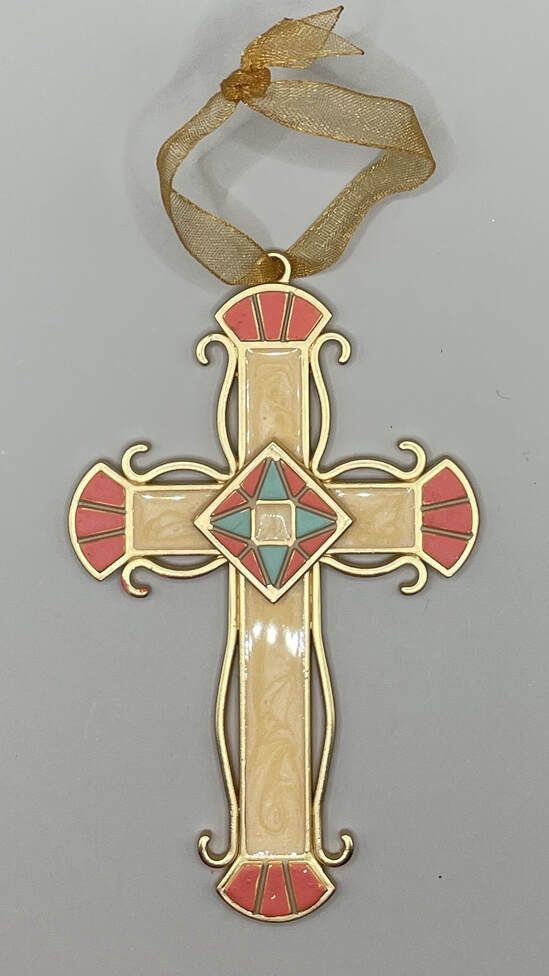
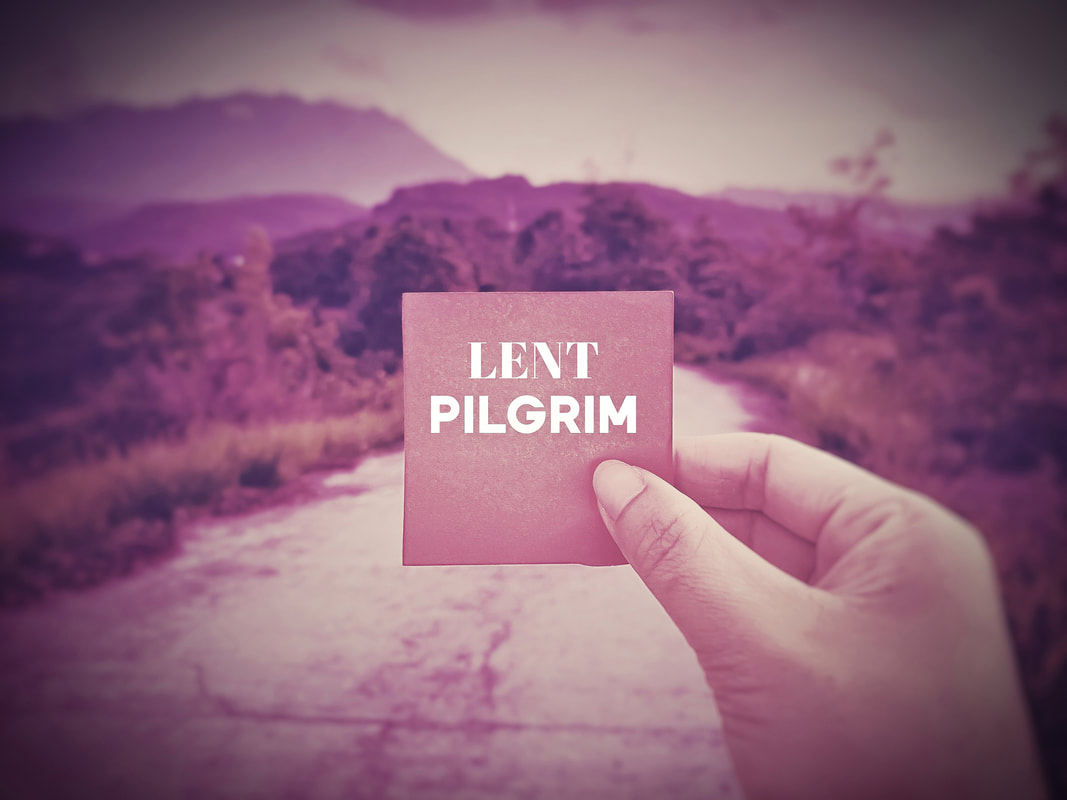
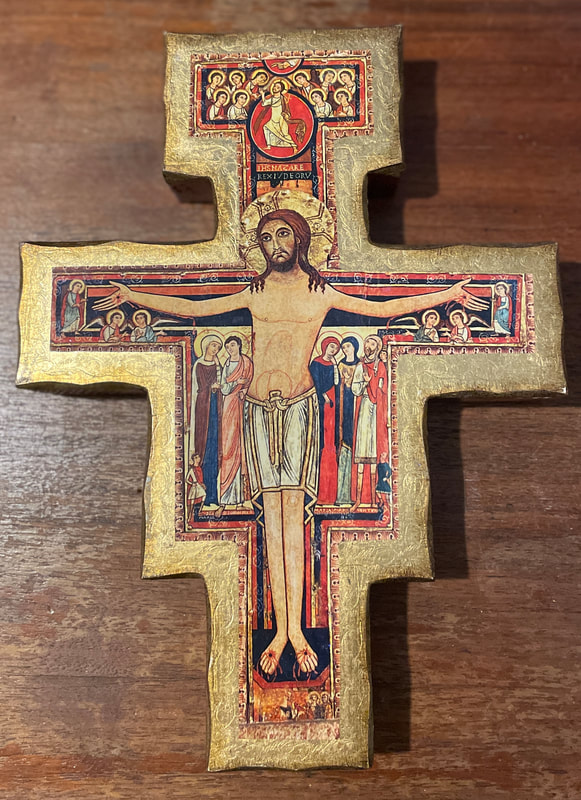
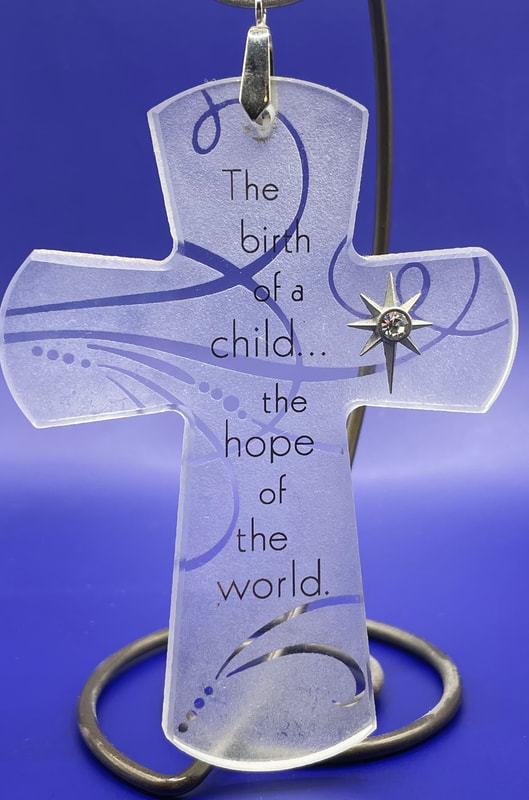
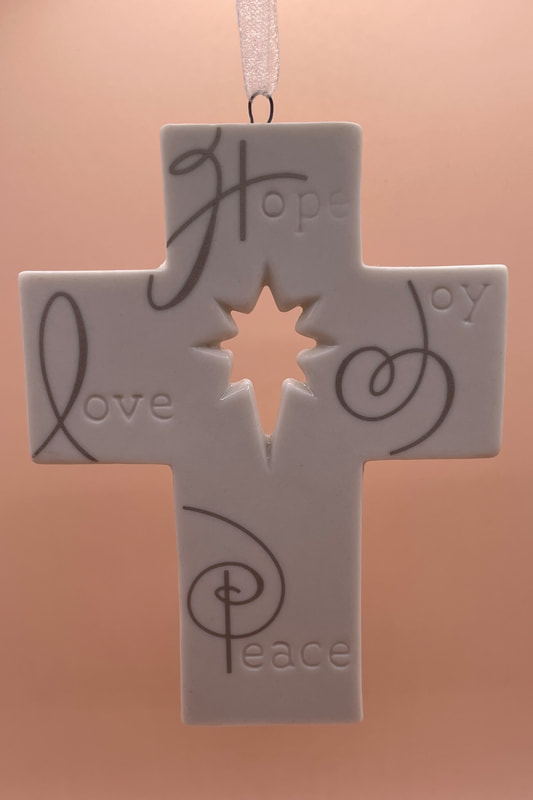
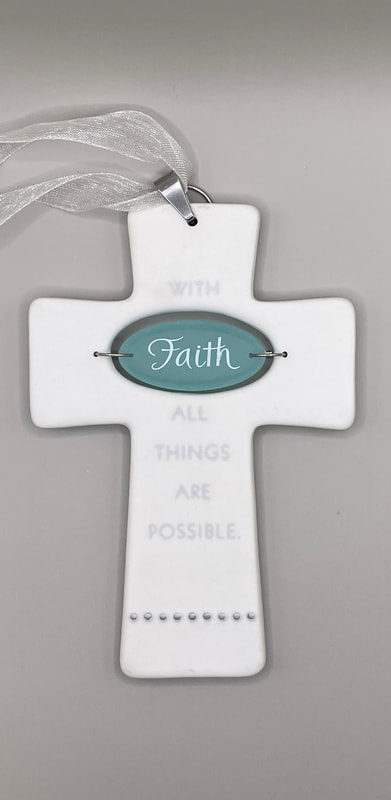
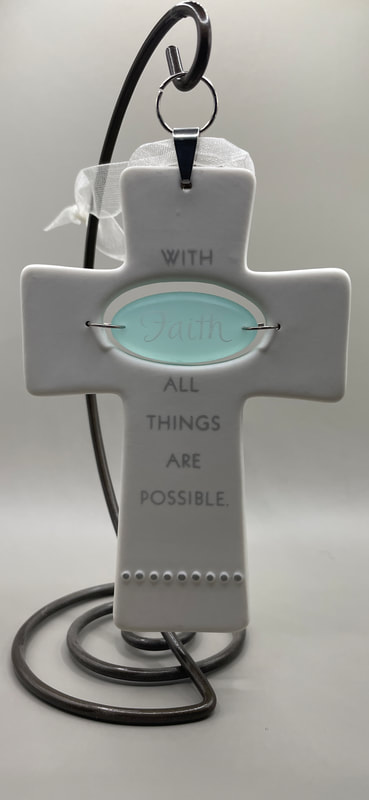
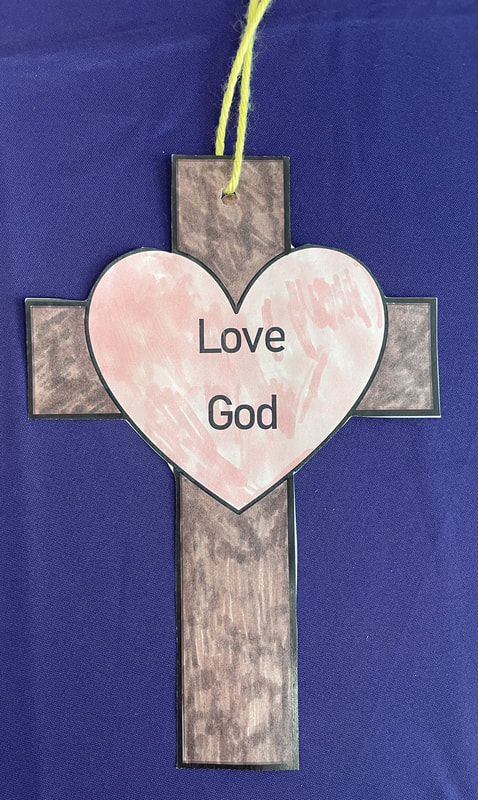
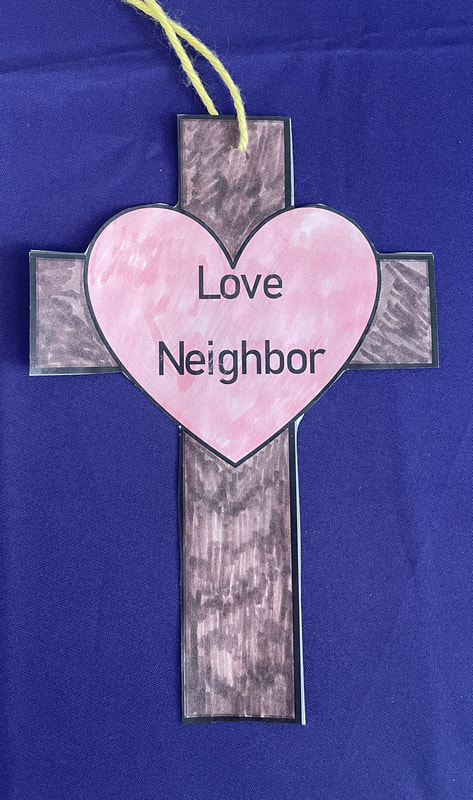
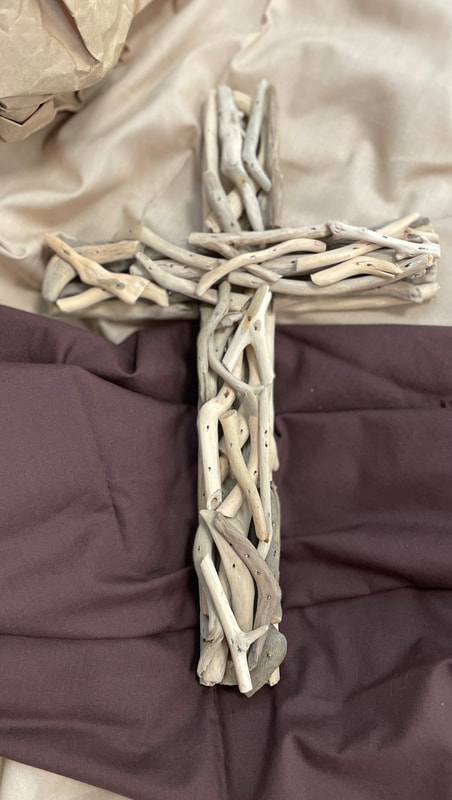
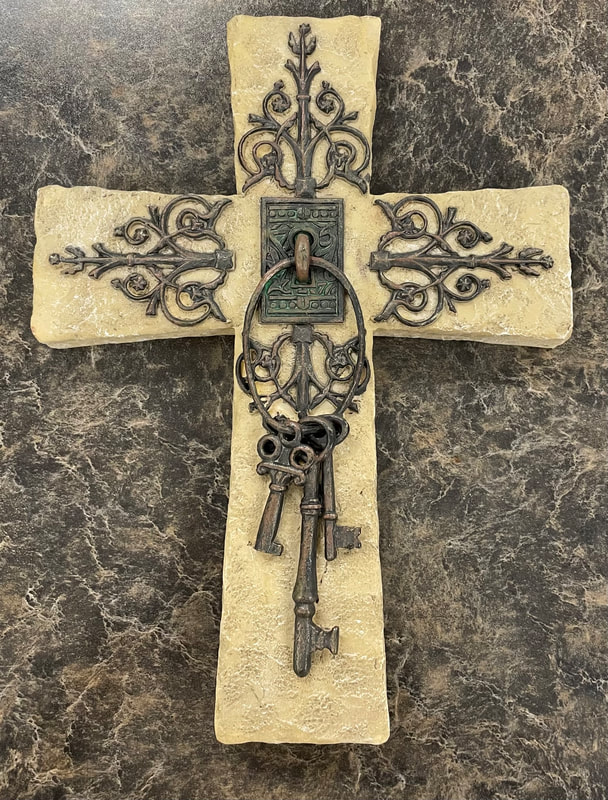
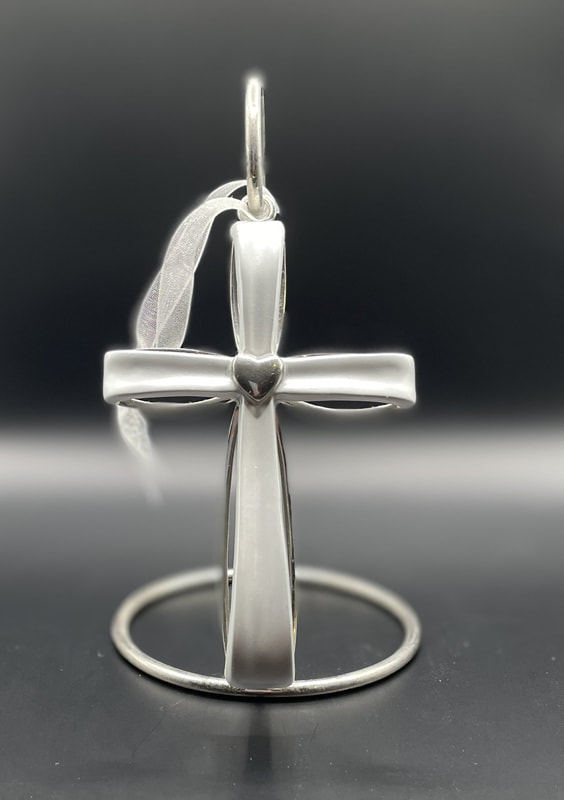
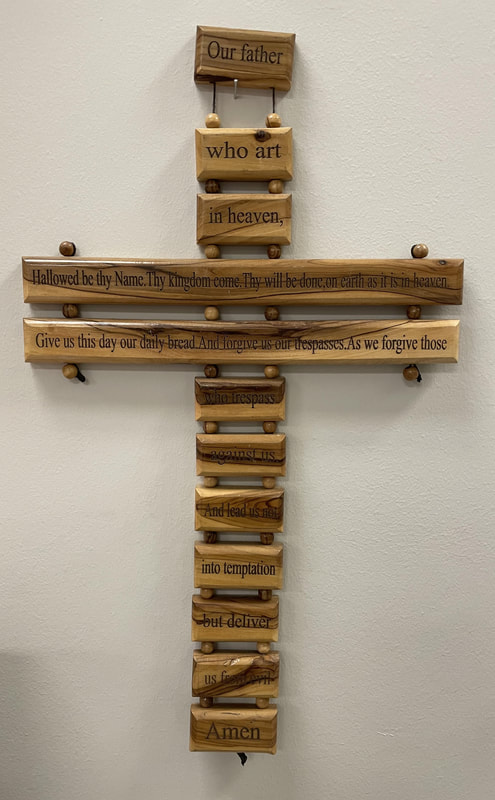
 RSS Feed
RSS Feed
